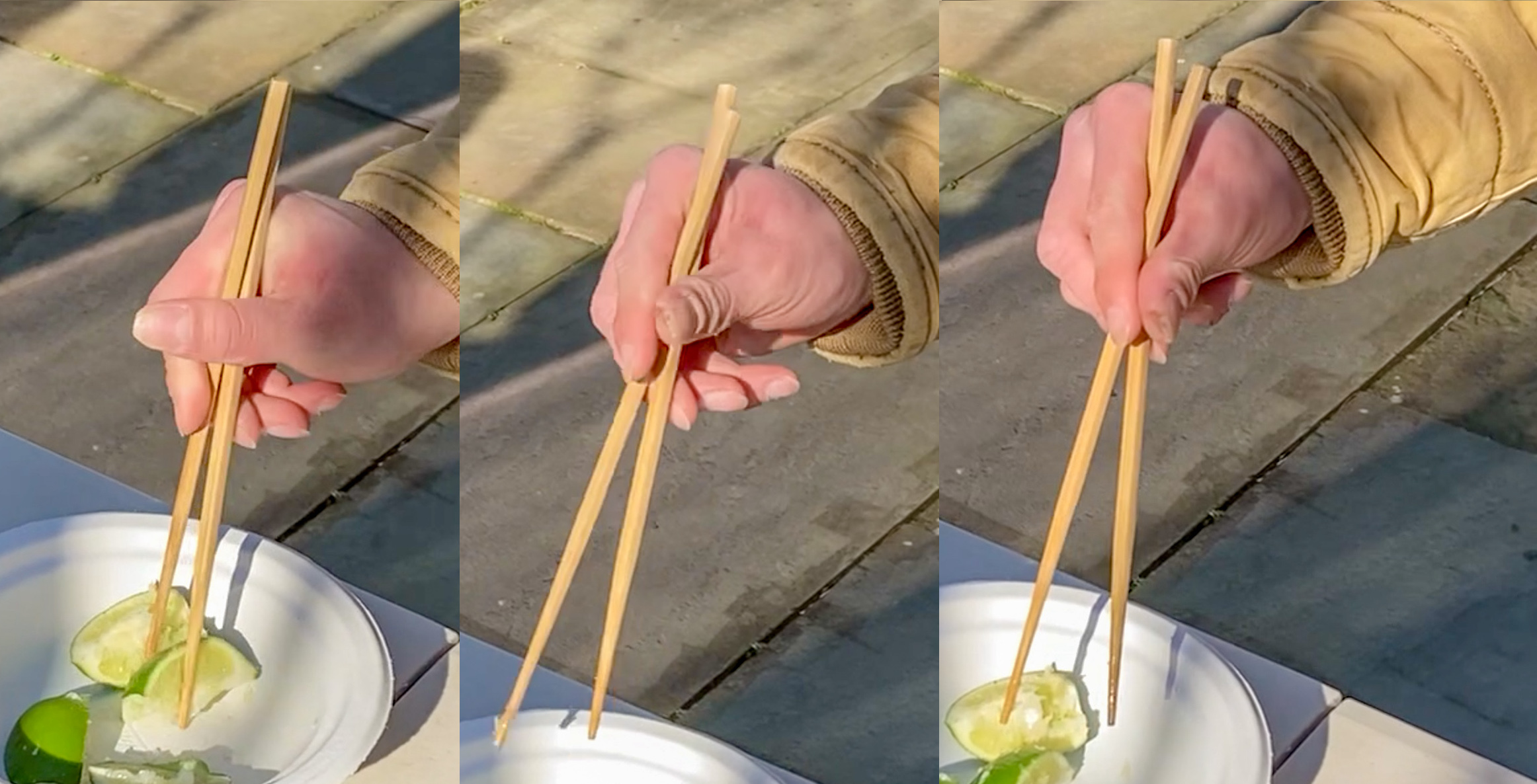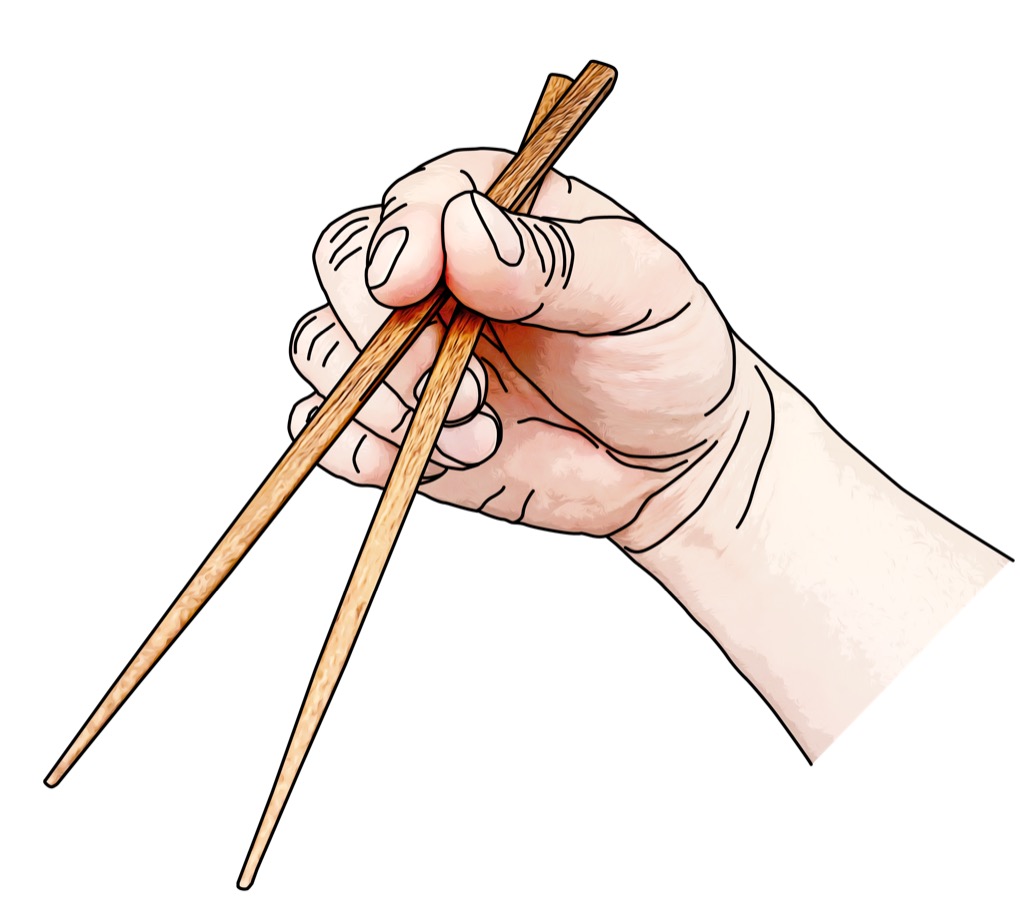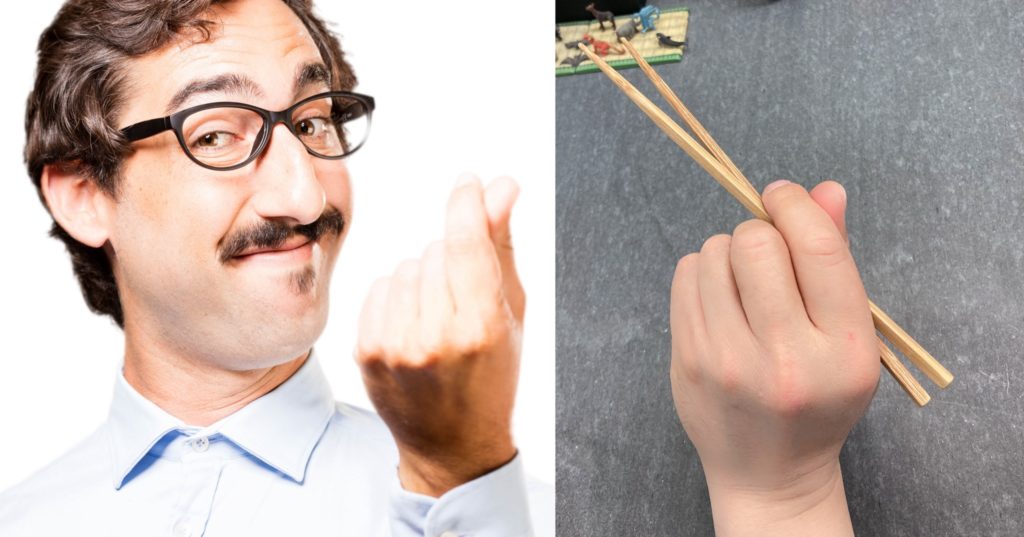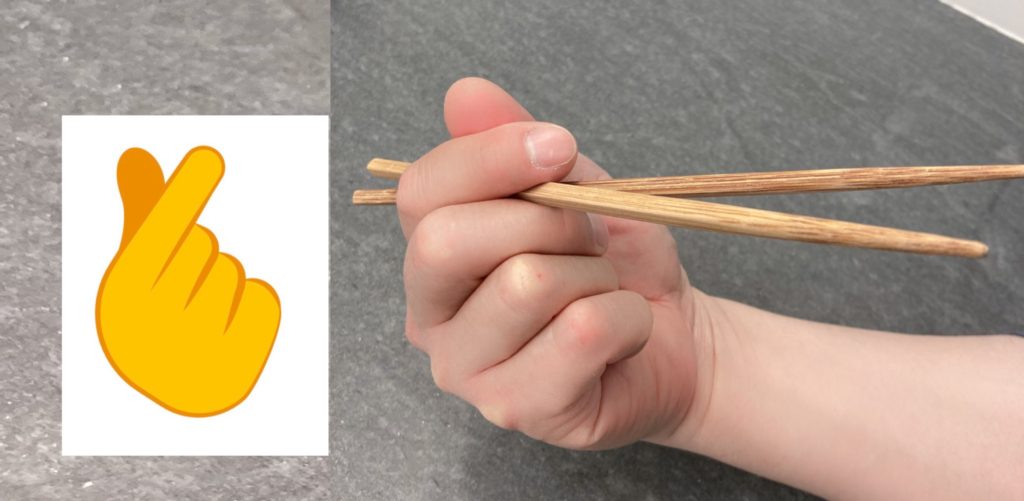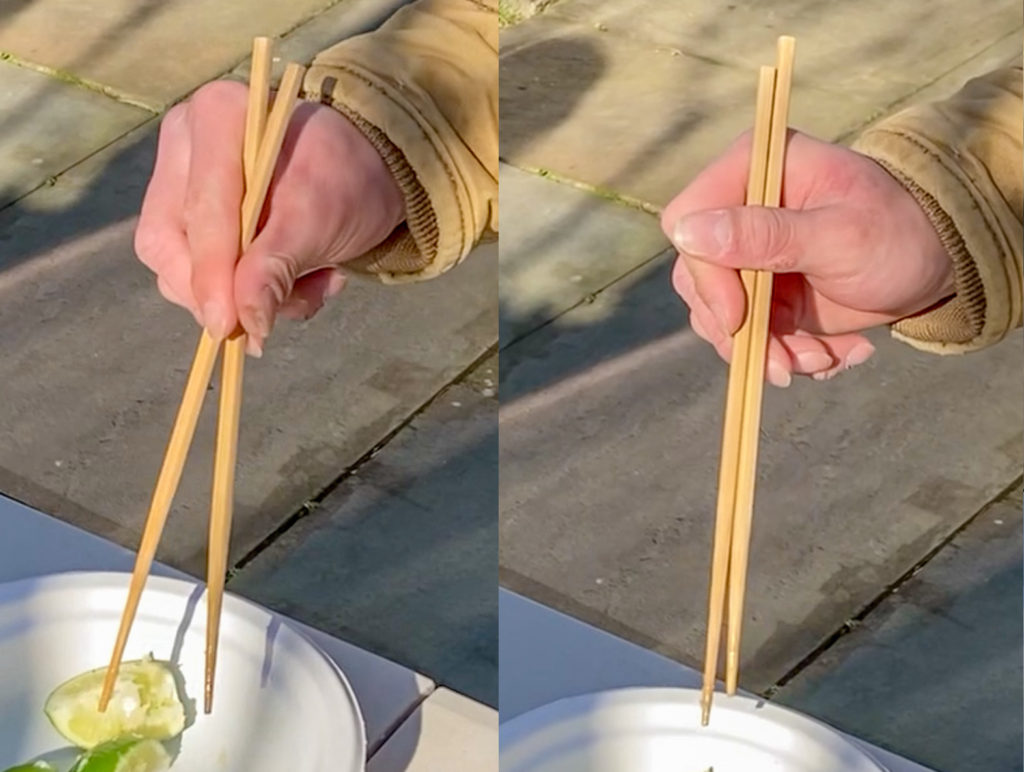Last Updated on 2021 年 06 月 30 日 by 編輯
Lateral Money is a variant grip where the top chopstick is swung sideways. It belongs to the largest chopstick grip family called Lateral grips. Lateral Money features a money gesture movement for the index finger and the thumb, as they manipulate the top chopstick open and closed.
This short article describes unique features in Lateral Money. See parent article Lateral chopstick grips for aspects of Lateral Money shared with the rest of its family members, including Lateral Squid and Lateral Gangnam Style.
內容目錄
The name
The name. It’s obvious if you look at these two pictures.
Here is the newly-approved Unicode emoji for the money gesture, compared to Lateral Money.
Here is a video showing the money gesture movement in this grip.
Following pictures of Lateral Money are artificially re-oriented in the perspective of the money hand gesture, for better comparison.
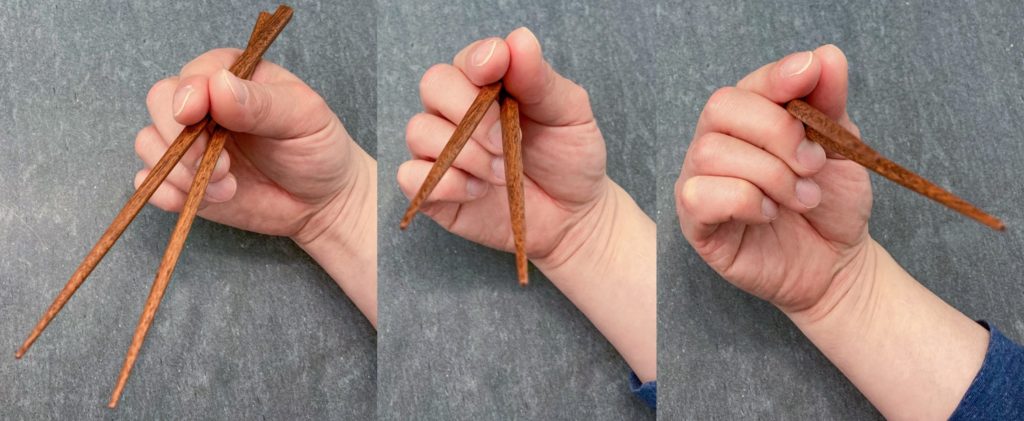
Following is the stereotypical open posture of Lateral Money seen from typical chopstick grip perspectives.

A sideway variant
We have previously identified a new factor to describe and classify related chopstick grips, based on how the top chopstick swings, in variant grips. This is detailed in Out with the Crossed Type, in with the Under Swing. Using the insight, we have classified all Lateral grips based on three types of swings: 1) classic swing, 2) sideway swing, and 3) underswing.
Lateral Money is a sideway swing variant in this large Lateral grip family. It is in the minority. Most Lateral grip variants are found in the classic swing subfamily, followed by the underswing subfamily.
Pictures below illustrate how a Sideway Lateral user prods the top chopstick open sideways, starting from the far left, and ending at the far right. Note how the index finger nudges the top chopstick to the side. Also observe how the base of the thumb relents to accommodate the movement of the rear end of the top chopstick.
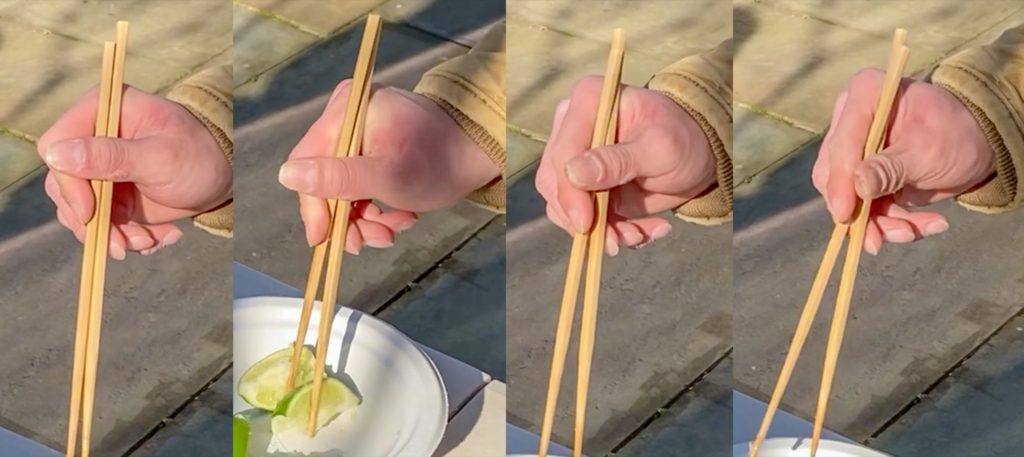
The thumb, the index finger, and the middle finger make a “give me money” gesture, as they extend chopsticks open, and then clutch them closed.
Clutching chopsticks closed
The index finger and the thumb base swing the top chopstick sideways to the right, when extending chopsticks apart. This is quite different from the classic swing of the top chopstick in sibling grips such as Lateral Chick. This underswing movement results, in turns, in the hand having to clutch chopsticks closed in a different way as well, when closing tips of chopsticks.
Following images show how a classic grip such as Lateral Chick clutches chopsticks closed. To bring chopsticks toward each other, the index finger and the middle finger pinch the top chopstick immobile. Then these two fingers bring the top chopstick down toward the bottom chopstick. At the same time, the base of the thumb pushes against the rear end of the bottom chopstick, in preparation for the impact from the top chopstick.
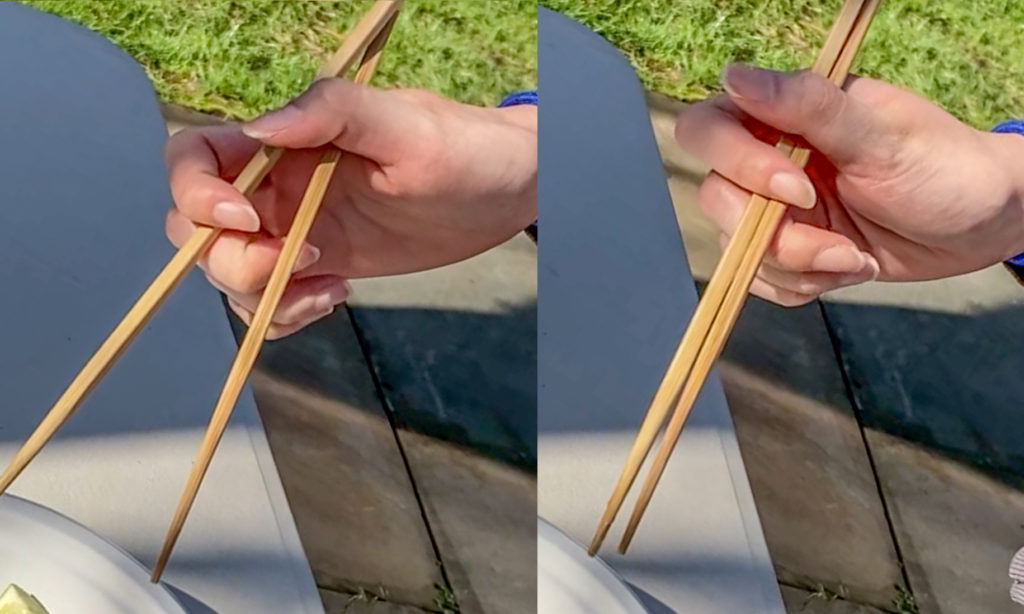
Following images show how a sideway grip such as Lateral Money clutches chopsticks closed. Despite the similarity of the Abutting posture (below right) to that of Lateral Chick (above right), Lateral Money uses completely different finger dynamics to clutch chopsticks closed, compared to Lateral Chick.
In Lateral Money, the two chopsticks appear to pivot around each other at the location where the index finger touches the top chopstick. To close tips of chopsticks, Lateral Money moves the thumb rearward, as the thumb base nudges the rear end of the top chopstick toward the palm. The middle finger pushes the front end of the top chopstick in the opposite direction. This gives the illusion that the top chopstick pivots near the index finger tip.
Taiwanese: 算銀票
This grip is known as 算銀票 (Sǹg gîn-phiò) in Taiwanese. Technically its full name should be 邊仔算銀票 (piⁿ-á sǹg gîn-phiò).
